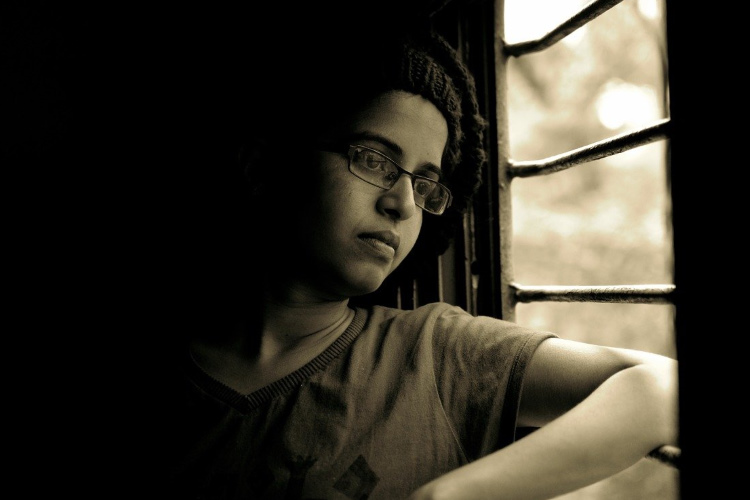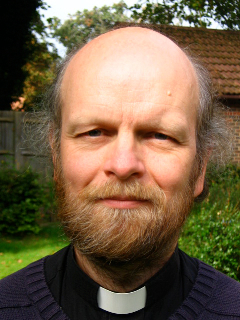Opinion Column

On being a Holy Saturday Christian
As we approach Easter, Andy Bryant points out that many people remain stuck in the day between the grief of Good Friday and the joy of Easter Sunday.
The most neglected day in the Church’s Year is Holy Saturday – the day between Good Friday and Easter Day. At best it is a pause between the stillness of Good Friday and the celebrations of Easter Day, reduced to little more than a preparation day for the great feast. Yet for many of us, this neglected day is where much of our lives are lived - in one long Holy Saturday.
This present season of Lent is traditionally a time of fasting, prayer and acts of service - a time to study God’s holy word that our eyes may be opened to God’s presence in the world. At its best Lent should be a springtime for our life in Christ, a time when our faith comes alive again, when our discipleship is renewed and restored. All this, preparing us to come to the Easter feast with joyful hearts and minds.
We journey through our Lord’s passion, waving our branches on Palm Sunday and then watching as the mood grows darker. We are drawn to the Last Supper, the Garden of Gethsemane, the arrest and trial, and finally to Golgotha. There is a heart stopping pause before the mystery of the stone rolled back, the encounter in the garden, the appearance in the upper room and breakfast on the beach and our churches are filled with shouts of Alleluia! Christ is risen.
But what happens if you do not reach Easter Day?
The truth is that many of us experience our own personal Good Friday, a time when our lives implode as a result of a medical diagnosis, a significant change in our physical health, struggles with our mental health, growing immobility, bereavement, the loss of financial security or a myriad of other reasons why the skies above us seem to grow darker.
In the face of suffering too many want to rush in and offer reassurance – the well meant but often unhelpful desire to “make it better”. Too soon people want to talk of hope, to reassure that light comes out of the darkness, to remind us that the tomb was empty. Such unhelpful talk invalidates the hurt that is being experienced. Worst still it can make the hurt feel worse because then there is the guilt of not being able to generate the positivity that others seem to want of us.
When the storm clouds gather it does not help to be told that the storm will soon pass. I am still left afraid of the thunder and lightning. It does not help to be told not to be afraid. Rather I need you, if invited, to hold my hand, to stay with me in my fear and to keep me safe in my anxiety.
On that first Holy Saturday the disciples hid away in the upper room, bereaved and afraid. Their world had been turned upside down; hope had been taken away. There was nothing anyone could have said that could have made it better; there was no undoing what had happened. What dawns the next day is beyond all expectation; it is beyond hope.
When life implodes on us, talk of Easter hope is meaningless. There is no “making it better’; there is no undoing what has happened. Bland platitudes of hope or references to death and resurrection are at best insensitive and fail to honour all that has happened.
Yes, the tomb was empty. Yes, Christ has conquered death. But when life implodes, I still have to deal with the reality of the implosion. The true pastoral response is to be able to stay with the hurt, to understand that right now tears are the only words. Sometimes life really is pants, and that just has to be honestly faced.
For some, Holy Saturday lasts a very long time, even many years. Comfort comes not from the sight of the empty tomb but from the One who cries: “My God, my God, why have you forsaken me?”. He who has been broken by pain, and who carries those scars even beyond death, is the God who is needed when life implodes. This is the God who holds us, and holds us, and holds us, even when we feel our lives are in free fall. This is Emmanuel, God with us. There may be no “making better” but knowing there is One who never lets us go is what helps me to endure.
So this season of Lent may be helping us prepare for the Easter celebration, and some may want to say that Christians are an Easter people, but please understand if for now I need to stay in Holy Saturday and please know God is there too. With a love that not even death can stop, He stays with us, holding us, until, in life or in life beyond death, the pain passes. This is the God who embraces the pain and does not side-step it. God is content to stay with us in the mess and the hurt, not trying to hurry us on, knowing it is enough to just be alongside, walking with us at our pace.
The image above is courtesy of pixabay.com
 The Revd Andrew Bryant is the Canon for Mission and Pastoral Care at Norwich Cathedral. He was previously Team Rector of Portishead, Bristol, in the Diocese of Bath and Wells, and has served in parishes in the Guildford and Lichfield Dioceses, as well as working for twelve years with Kaleidoscope Theatre, a charity promoting integration through theatre for young adults with Down’s Syndrome.
The Revd Andrew Bryant is the Canon for Mission and Pastoral Care at Norwich Cathedral. He was previously Team Rector of Portishead, Bristol, in the Diocese of Bath and Wells, and has served in parishes in the Guildford and Lichfield Dioceses, as well as working for twelve years with Kaleidoscope Theatre, a charity promoting integration through theatre for young adults with Down’s Syndrome.
You can read Andrew's latest blog entry here and can follow him via his Twitter account @AndyBry3.
The views carried here are those of the author, not of Network Norwich and Norfolk, and are intended to stimulate good-natured and constructive debate between website users.
We welcome your thoughts and comments, posted below, upon the ideas expressed here.
Click here to read our forum and comment posting guidelines